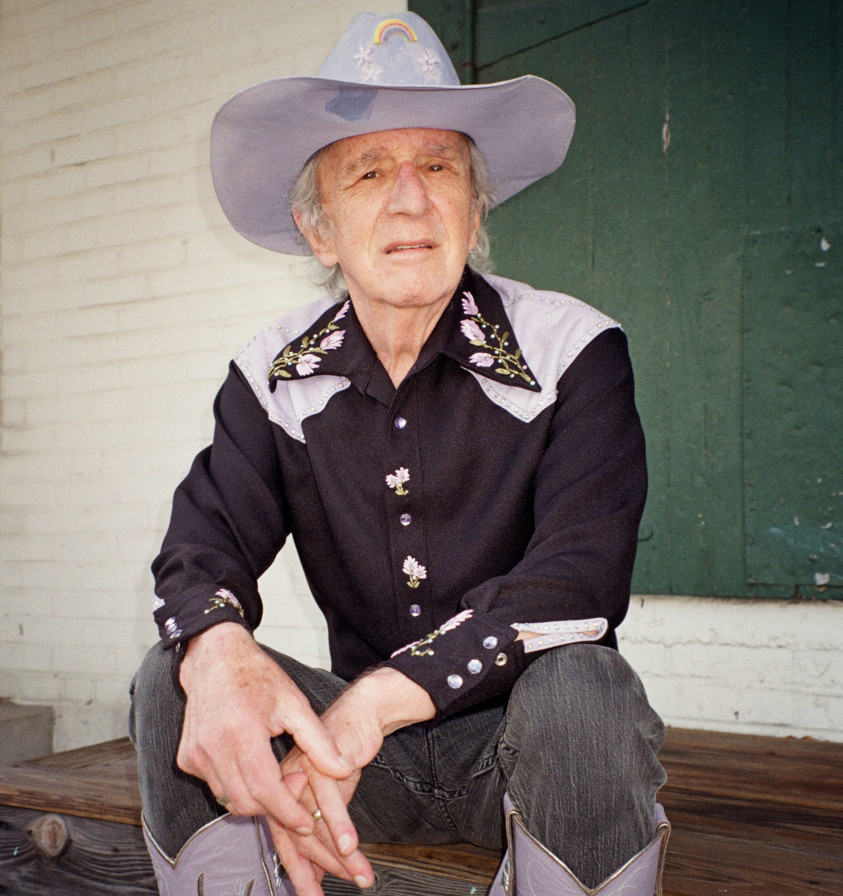Refusing to walk the line
Patrick Haggerty’s life as an activist, iconoclast and queer country crooner
The outlaw, the desperado, the Man in Black: some of country music’s most prominent figures have defined themselves by living life on the fringe and answerin’ to nobody. Yet perhaps country’s greatest dissident prides himself on a truly countercultural lifestyle – emphasis on the “pride.”
“I didn’t really have peers and contemporaries in the country music scene because of that choice. There wasn’t anybody in the country-music scene who wanted to hear anything that I had to say,” Patrick Haggerty, founder, lead singer and rhythm guitarist of country act Lavender Country, says.
That choice was being openly and proudly gay. Growing up on a Washington state dairy farm in Eisenhower-era America, Haggerty received support from perhaps the unlikeliest of sources: his father.
“He did all manner of things to support me in my journey, even though my journey was a very different one than he was on. He was righteous, and he showed me how to be a forthright queer, and that’s what I am,” Haggerty says.
Later galvanized by the Stonewall riots of 1969, Haggerty issued himself an ultimatum: stay in the closet and pursue a music career in Nashville or lead a “life of political rabble-rousing” as an activist.
“I chose to have the life of a queer, socialist, activist loudmouth, and that was a deliberate choice, and it was a painful choice,” Haggerty says.
In 1972, he formed the proudly homosexual honky-tonk quartet Lavender Country. A year later, they independently funded and released their self-titled debut. It may have been the first queer country record, and a mere 1,000 copies were pressed and sold.
“Lavender Country was appreciated by a small group of gay, lesbian and transgender Stonewall activists. That was my base, and that was who I ran with, and that was who wanted to hear the music,” he says.
“I never went to a country bar and did Lavender Country. I would’ve been thrown out. We knew that gay country was not ever going to sustain us.”
After the group disbanded in 1976, Haggerty committed himself to intersectional activism, rubbing elbows with famed American politician Harvey Milk in the late 1970s and twice running for office.
In 2019, he reunited with original Lavender Country guitarist Robert Hammerstrom to record their sophomore effort, Blackberry Rose, 46 years after their debut.
But decades after his mainstream rejection, Haggerty still doesn’t relish the idea of the limelight.
“The mechanisms that create music stars are pretty ugly,” Haggerty says. “I’m very happy with what I have now. I’m not trapped by commercial capitalist notions of what music is. I’m outside of that.”
While Haggerty has been everywhere, man, his show at the High and Lonesome Club in Winnipeg on Sept. 17 was a highlight.
“It was very well-attended, and it was attended by folks who really wanted and needed to be there. A lot of political solidarity was created in Winnipeg with the audience that I played to, which is what I wanted and why (we) did the show,” he says.
For Haggerty, the message has always taken precedence over the medium.
“I made Lavender Country in 1973 as a vehicle for radical social change. That’s why I made it. The world, particularly the US, is in desperate need of music with a radical format. The culture needs it bad.”
Published in Volume 77, Number 04 of The Uniter (September 29, 2022)








